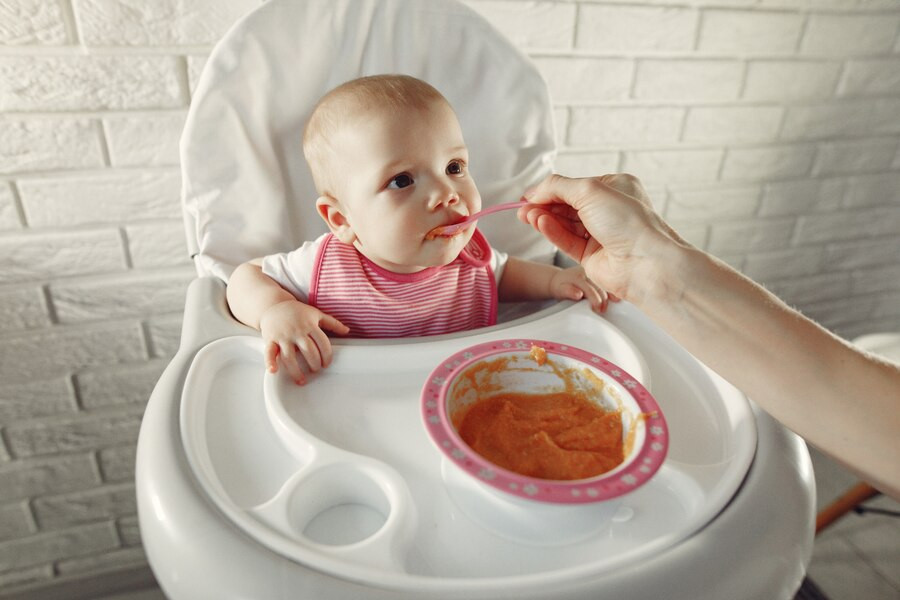Anak susah makan adalah masalah umum yang dihadapi banyak orang tua. Situasi ini sering kali menimbulkan kekhawatiran terutama kaitannya dengan pertumbuhan dan perkembangan anak.
Anak yang susah makan dan gemar pilih-pilih makanan, mungkin tidak mendapatkan cukup nutrisi penting yang diperlukan untuk pertumbuhan dan perkembangan. Kekurangan nutrisi seperti vitamin, mineral, protein, dan kalori dapat menyebabkan pertumbuhan yang terhambat, penurunan berat badan, atau tidak mencapai berat badan ideal sesuai dengan usianya.
Tips Menghadapi Anak Susah Makan
Ada banyak strategi yang dapat digunakan untuk mengatasi anak susah makan. Namun, sangat penting untuk mengetahui terlebih dahulu, penyebab dari masalah ini.
Beberapa anak mungkin mengalami susah makan karena masalah menelan, masalah pencernaan, keterlambatan mengenal makanan, atau tekanan untuk makan. Dengan mengetahui penyebab di balik anak susah makan, Anda bisa menemukan strategi yang lebih tepat untuk menghadapinya.
Berikut adalah beberapa strategi umum yang dapat digunakan untuk menghadapi anak susah makan:
Menciptakan suasana makan yang menyenangkan
Salah satu cara efektif untuk mengatasi anak susah makan adalah dengan menciptakan suasana makan yang menyenangkan. Buatlah waktu makan sebagai momen untuk berkumpul bersama keluarga tanpa tekanan.
Hindari memaksa anak untuk makan atau mengancam mereka jika mereka menolak makanan. Sebaliknya, berikan pujian ketika mereka mencoba makanan baru, sehingga merasa didukung dan dihargai.
Baca Juga: Penyebab Anak Menjadi Picky Eater (Pemilih Makanan)
Tawarkan porsi kecil dan variasi makanan
Anak-anak sering merasa kewalahan dengan porsi makanan yang terlalu besar. Oleh karena itu, mulailah dengan memberikan porsi kecil dan biarkan mereka meminta tambahan jika masih merasa lapar.
Variasikan jenis makanan yang disajikan agar anak tidak bosan dan tertarik mencoba berbagai jenis makanan lainnya. Cobalah untuk menyertakan berbagai warna dan bentuk makanan di piring mereka.
Libatkan anak dalam persiapan makan
Mengajak anak untuk terlibat dalam proses menyiapkan makanan dapat meningkatkan minat mereka untuk makan. Ajak mereka memilih menu, membantu mencuci sayuran, atau menyiapkan meja makan.
Ketika anak merasa memiliki peran dalam menyiapkan makanan, mereka cenderung lebih mau mencoba makanan tersebut. Selain itu, ini juga dapat menjadi kesempatan untuk mengajari anak betapa pentingnya nutrisi yang terkandung di dalam makanan.
Buat jadwal makan yang teratur
Menjaga jadwal makan yang teratur dapat membantu anak mengembangkan kebiasaan makan yang sehat. Tetapkan waktu yang konsisten untuk sarapan, makan siang, makan malam, dan camilan.
Dengan demikian, anak akan terbiasa dengan rutinitas makan dan merasa lapar saat waktu makan. Hindari memberikan camilan terlalu dekat dengan waktu makan utama karena akan membuat anak kenyang dan tidak tertarik untuk makan.
Hindari menggunakan makanan sebagai hadiah atau hukuman
Menggunakan makanan sebagai hadiah atau hukuman dapat menciptakan hubungan yang tidak sehat antara anak dan makanan. Misalnya, memberikan permen bila anak mau menghabiskan sayurannya. Ini membuat anak berpikir bahwa makanan manis lebih bernilai daripada makanan sehat.
Fokuslah dengan memberi contoh baik dan mengajari anak tentang pentingnya makanan sehat.
Baca Juga: Dampak Kekurangan Vitamin D pada Anak-Anak
Menjadi teladan
Anak-anak cenderung meniru perilaku orang dewasa di sekitarnya. Oleh karena itu, pastikan Anda mengonsumsi makanan sehat di depan anak.
Tunjukkan sikap positif terhadap makanan dengan menikmati sayuran, buah-buahan, dan makanan sehat lainnya. Ketika anak melihat orang tuanya menikmati makanan sehat, mereka lebih cenderung mengikuti contoh tersebut.
Bersabar dan berikan waktu
Beberapa anak mungkin membutuhkan waktu lebih lama untuk terbiasa dengan makanan baru. Jangan menyerah jika anak menolak makanan baru di awal.
Kembali tawarkan makanan tersebut di kesempatan lain tanpa memaksa. Penelitian menunjukkan bahwa anak-anak mungkin perlu mencoba makanan baru beberapa kali sebelum pada akhirnya menyukainya.
Metode di atas diharapkan dapat membantu anak mengembangkan kebiasaan makan yang sehat. Namun, jika Anda masih merasa kesulitan dalam mengenalkan makanan pada anak, sebaiknya konsultasikan dengan dokter. Anda juga bisa memanfaatkan layanan konsultasi kesehatan Ai Care dengan mengunduhnya di App Store atau Play Store.
Mau tahu informasi seputar kehamilan, menyusui, kesehatan wanita dan anak-anak? Cek di sini, ya!
- dr Nadia Opmalina
Robert "Chuck" Rich, Jr., MD, FAAFP (2023). When Your Toddler Doesn’t Want to Eat. Available from: https://familydoctor.org/when-your-toddler-doesnt-want-to-eat/
Valencia Higuera (2019). What Can You Do If Your Child Refuses to Eat Anything?. Available from: https://www.healthline.com/health/parenting/child-refuses-to-eat-anything
Kids Health (2021). Toddlers at the Table: Avoiding Power Struggles. Available from: https://kidshealth.org/en/parents/toddler-meals.html
Mandy Rich. 7 tips for winning over a picky eater. Available from: https://www.unicef.org/parenting/food-nutrition/7-tips-winning-over-picky-eater
Harvard Medical School (2020). Study gives insight — and advice — on picky eating in children. Available from: https://www.health.harvard.edu/blog/study-gives-insight-and-advice-on-picky-eating-in-children-2020060920004
University of Rochester Medical Center. Why Parents Shouldn't Use Food as Reward or Punishment. Available from: https://www.urmc.rochester.edu/encyclopedia/content.aspx












